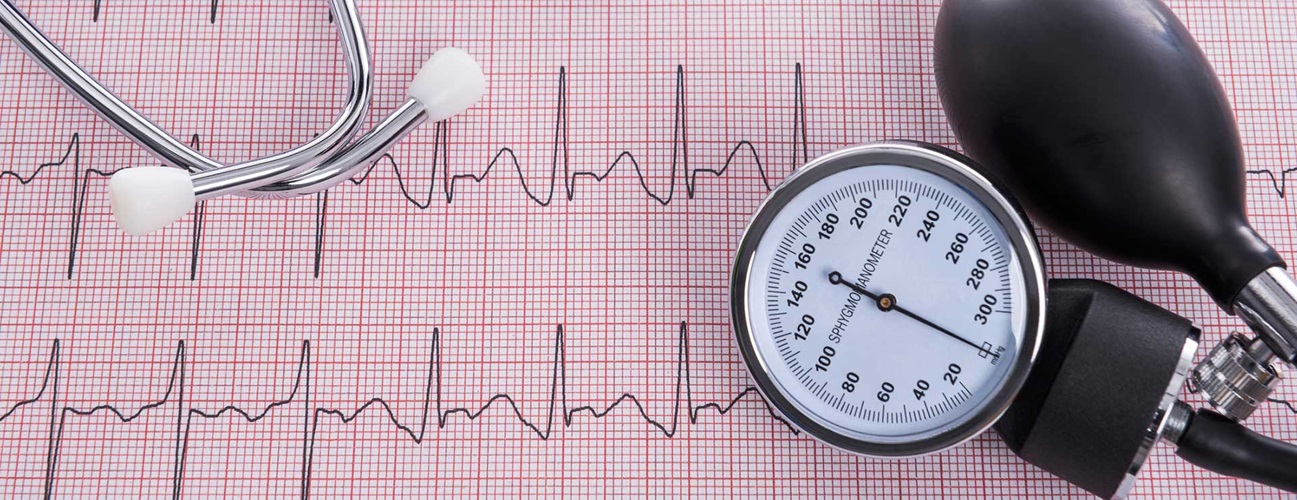Hidden Brain Risk: Midlife High Blood Pressure
It’s long been known that keeping your blood pressure within a healthy range helps protect against heart attack and stroke. Now a recent study from Johns Hopkins University has uncovered a new risk worth sidestepping: People with high blood pressure at midlife had greater decline in key thinking skills later in life than those with normal blood pressure readings.
Although the difference was slight—equivalent to an extra 2.7 years of brain aging, on average, when study volunteers were in their 70s, 80s, and 90s—the results are nevertheless significant. For most, this wouldn’t be enough cognitive decline to notice the difference, but it could be enough to push someone over the threshold to a diagnosis of mild cognitive impairment or dementia.
Measuring Cognitive Decline
The research team discovered this link by analyzing health information gathered from more than 15,000 adults for the Atherosclerosis Risk in Communities Study, a long-term project started in the late 1980s that has followed volunteers for over 25 years. The scientists compared study participants’ blood pressure measurements (the first taken between ages 48 and 67) with the results of three thinking-skills tests they took several times during the study. The results:
Speed and planning skills were hardest hit. High blood pressure was linked most closely with slowdowns in two key thinking skills:
- Mental processing speed—how fast you can do a math problem (such as figuring out a restaurant tip) or understand complicated instructions (such as tricky driving directions)
- Executive function—how well you can plan, organize, remember details, and manage your time
High blood pressure was associated with above-normal declines. Almost everyone showed some signs of fuzzy thinking and memory loss over the 25 years. But people with midlife hypertension had a 6.5 percent steeper decline by the time they were in their 70s, 80s, and 90s.
Controlling blood pressure helped. People who had high blood pressure at midlife and controlled it with medication had better results on the brain tests than those whose blood pressure was not controlled.
Try It Manage Your Blood Pressure and Your Brain Power
A growing stack of medical research—including this study—suggests that high blood pressure raises risk for thinking problems, early brain aging, and even Alzheimer’s disease. These three steps may help reduce risk:
Know your number. Have your blood pressure checked regularly. People tend to ignore high blood pressure, particularly when they are younger, because it has no symptoms that you can feel or see. But it’s important to pay attention to it.
Take care of higher-than-normal blood pressure right away. Talk with your doctor about what blood pressure is appropriate for you. If yours is higher than recommended, your doctor will advise you take lifestyle steps such as weight loss, regular exercise, and a lower-sodium diet that features plenty of fruits and vegetables to bring it down to a healthier level. Your doctor may also prescribe drugs that lower blood pressure.
If your doctor prescribes medications for your blood pressure, take as directed. Nearly half of all people with high blood pressure don’t have it under control, according to the Centers for Disease Control and Prevention. One big reason: skipping medication or not taking it as directed.
How High Blood Pressure Can Affect Thinking Skills
High blood pressure leads to brain changes that are similar to the results of a stroke. Sometimes these changes are called ‘silent strokes’ because they don’t always cause symptoms at the time.
High blood pressure may also damage tiny arteries that feed “white matter”—the wire-like cells that carry information from one area of the brain to another.
Definitions
Dementia (di-men-sha): A loss of brain function that can be caused by a variety of disorders affecting the brain. Symptoms include forgetfulness, impaired thinking and judgment, personality changes, agitation and loss of emotional control. Alzheimer’s disease, Huntington’s disease and inadequate blood flow to the brain can all cause dementia. Most types of dementia are irreversible.






